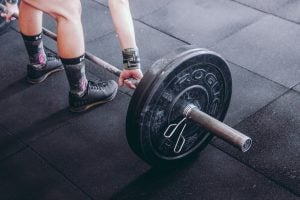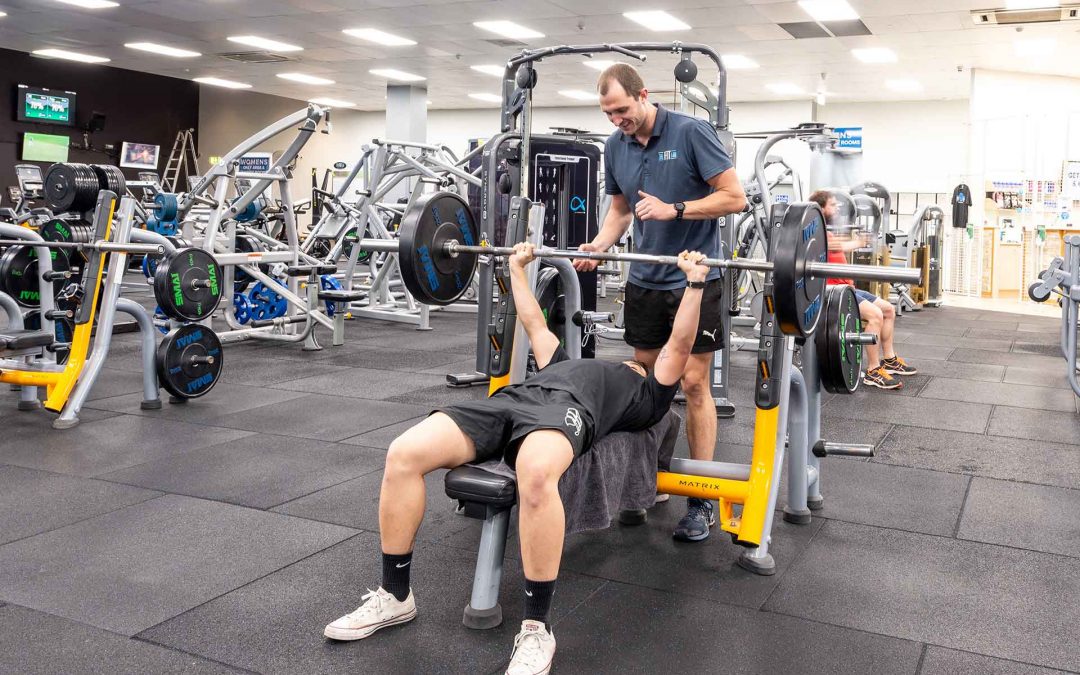What is it?
It’s a naturally occurring substance in the human body which is found in the brain and muscle tissues. Our bodies naturally produce a small amount of creatine but some sources of creatine include red meat and fish. Since meat is the primary source of dietary creatine, vegetarians have smaller amounts of skeletal creatine than meat eaters.

What does it do?
Creatine plays an important role in powering exercise and movement. Phosphocreatine (a form of creatine found in the muscles) is responsible for quickly restoring levels of ATP. ATP is the fuel currency for our muscles. When our muscles are working, ATP is broken down to power the movement/exercise and although the body can produce more ATP from fuel sources like carbohydrate and fat, these are slow processes. Thus Phosphocreatine is favoured to provides a quick pool of energy to allow rapid restoration of ATP. (super ideal for high intensity exercise – think sprinting, max effort power movements etc.). Our bodies naturally only have a small amounts of creatine to power 10 sec of high intensity exercise. Therefore, Increased creatine stores can enhance fatigue resistance and lead to performance improvements during high-intensity, brief duration (<30 second) activities with short recovery periods.
Who should consider supplementing?
- Vegetarian Athletes – as diet lacks dietary sources of creatine
- Athletesparticipating in sports such as throwers or sprinters with repeated brief, high intensity efforts with short recovery periods
- Athletes involved in team sports with intermittent high intensity efforts (e.g. rugby, football, basketball)

- People undertaking a resistance training program as it assist with increased lean muscle mass
Dosage Protocol
The simplest, cheapest and most researched form of creatine is creatine monohydrate. The dosage protocol is to consume 3-5g of creatine every day (training or non-training days) with a source of carbohydrates for improved absorption. The timing of supplementation is irrelevant.
Side effects
The loading of creatine within muscle tissues can result in a slight weight gain of 600-1000g which may be counterproductive for athletes competing in sports where power to weight ratio is relevant
Some athletes report stomach discomfort from supplementing creatine with higher dosages. 3-5g/day over a longer period of time can help avoid any gut discomfort.
Creatine and cognition
Recently there has been a huge interest in supplements that improve brain health and sports performance. There have been extensive studies on creatine and improved sports performance however since creatine is found in brain as well as muscle tissues, researchers are now finding correlation between creatine and improved cognition.
Our brain has high metabolic demands, it uses up to 20% of your basal energy expenditure /day. Similar to skeletal muscles to maintain ATP levels during times of high-energy demand, the brain also relies on phosphocreatine for quick ATP regeneration. Therefore, improved concentration of creatine in the brain can assist with improved brain health in situations whereby cognitive processes are stressed such as during sleep deprivation, experimental hypoxia, or during the performance of more complex, and thus more cognitively demanding tasks. Some evidence also suggest that increased brain creatine may be effective at reducing the severity of, or enhancing recovery from mild traumatic brain injury (mTBI) or concussions. Athletes involved in contact sports where collisions occur frequently can benefit from reduced severity of mTBI.
Further reading;
Dolan E, Gualano B, Rawson ES. Beyond muscle: the effects of creatine supplementation on brain creatine, cognitive processing, and traumatic brain injury. Eur J Sport Sci. 2019 Feb;19(1):1-14. doi: 10.1080/17461391.2018.1500644. Epub 2018 Aug 7. PMID: 30086660.
Roschel H, Gualano B, Ostojic SM, Rawson ES. Creatine Supplementation and Brain Health. Nutrients. 2021 Feb 10;13(2):586. doi: 10.3390/nu13020586. PMID: 33578876; PMCID: PMC7916590.
Hall M, Manetta E, Tupper K. Creatine Supplementation: An Update. Curr Sports Med Rep. 2021 Jul 1;20(7):338-344. doi: 10.1249/JSR.0000000000000863. PMID: 34234088.
Stares A, Bains M. The Additive Effects of Creatine Supplementation and Exercise Training in an Aging Population: A Systematic Review of Randomized Controlled Trials. J Geriatr Phys Ther. 2020 Apr/Jun;43(2):99-112. doi: 10.1519/JPT.0000000000000222. PMID: 30762623.
